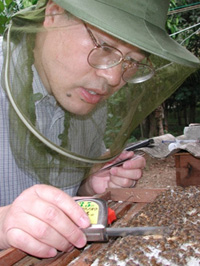Opposition is growing to the European Commission's plans to make bee medicines prescription-only and therefore available only through vets.
Because bees are classed as food-producing animals, they are falling within the remit of a new European Directive that requires all medical treatments for food-producing animals to be administered or at least monitored by vets.
Beekeepers fear that this added layer in the medicines chain will significantly increase treatment prices, discourage use of approved products, and result in a lot more bee deaths. Irony of ironies, the legislation is likely to lead to more contamination of honey because some beekeepers may resort to unapproved treatments. To top it all vets (in the UK at least) have no formal training or professional knowledge of honeybees.
In short, the new legislation seems crazy and counter-productive. Beekeepers are amused by the idea of vets coming to see their bees to prescribe treatments. “You want to see all the bees? Let me round them up.” Or do beekeepers take a hive to the vets? “What do you have in your pet carrier?”
Beekeepers across the EU are
being encouraged to lobby for an exemption of honeybees from the legislation and are being urged to contact the relevant agency in their European Union Member State. Already the agency in the UK -- the
VMD (Veterinary Medicines Directorate) -- is committed to pushing for the honeybee exemption.
The new legislation is also causing some consternation amongst those who deal with what are affectionately known as “non-food chain horses”.


